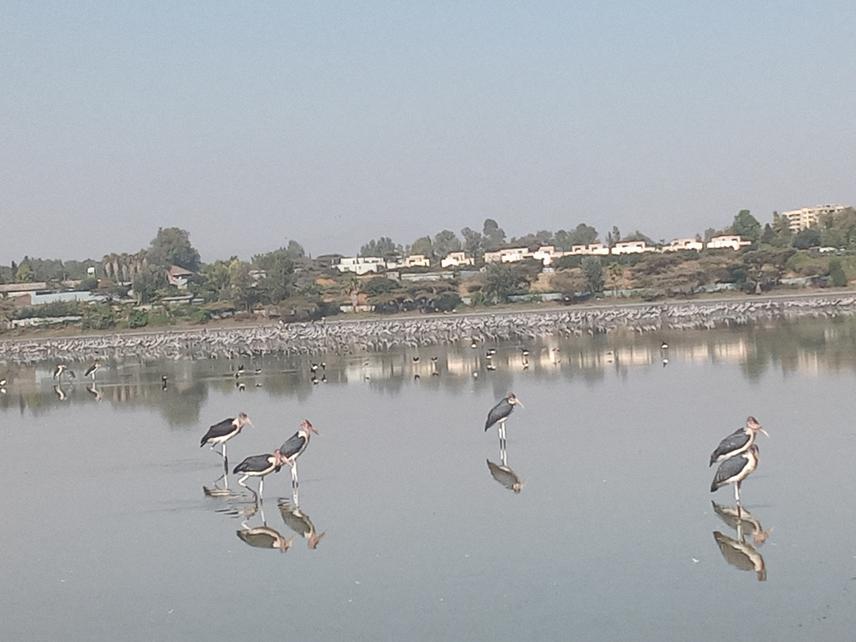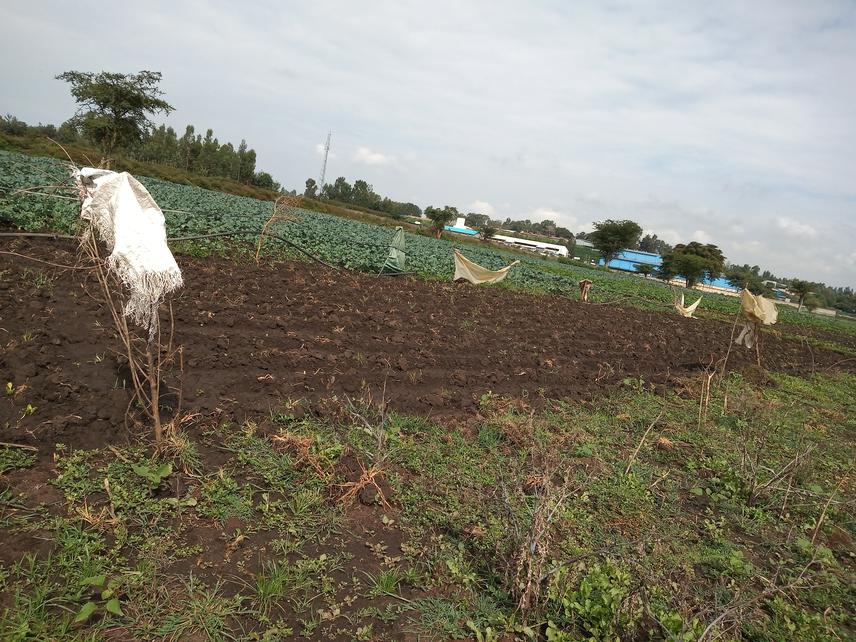Mebrat Teklemariam Gebrekidan
Other projects
10 Dec 2021
Effects of Land Use Land Cover Changes on Population Dynamics and Feeding Ecology of Lesser Flamingo (Phoeniconaias minor) in Chelekleka Wetland, Ethiopia
Wetlands are known as “biological supermarkets” and play an important role in ecological processes and socio-economic development (Luo et al., 2019). In central Ethiopia, the Chelekleka wetland is a unique habitat harbouring at least 246 bird species of which 39% are migratory birds (Teklemariam et al., 2023). The wetland is recognized as an Important Bird Area (IBA) (EWNHS 1996, 2010) and Key Biodiversity Area (KBA) of international significance (Key Biodiversity Areas Partnership, 2024). However, it is unprotected and highly degraded wetland (Gessesse and Bewket, 2014) mainly due to anthropogenic factors such as horticulture expansion, intensive irrigation, pollution, residential encroachment, diversion of feeder stream flow and channeling Bishoftu town’s run off. These witnessed threats coupled with disturbance threaten the Lesser flamingo and other bird species relying on the wetland.

Some birds of Chelekleka wetland dominated by Common cranes (Grus grus). ©Mebrat Teklemariam (2022).
Despite this alarming situation, there are not adequate conservation efforts to protect the threatened species and the wetland. Unsustainable utilization of Chelekleka wetland has developed through the daily use of the wetland by local community for various purposes. Thus, empowering local people through development of ecotourism practices would be a good opportunity to engage local people in the conservation of this wetland and its rich biodiversity while meeting their daily needs. It is therefore essential to designate the wetland as a community-conservation area in collaboration of Ethiopian Wildlife Conservation Authority, Ethiopian Biodiversity institute and Bishoftu City Forest and Environment Authority through involving the local community and relevant stakeholders. Thus, this project also aims to assess the status of the Lesser flamingo and engage local community and legislatures to protect the species, the wetland and its inhabitants.

Water abstruction from Chelekleka wetland. ©Mebrat Teklemariam (2021).
Designating this IBA and KBA as a community- based conservation area could help to restore the normal ecosystem functioning, benefiting not only Lesser flamingo, but also other species found in the wetland. The Lesser flamingo is a flagship species and an extraordinarily charismatic bird of Saline Lakes of East Africa (Krienitz et al., 2016). Flamingos are popular as nature-based tourism attractions (Arengo and Galicia, 2017). This project can enhance possibilities for socio-economic benefits to the local community through bird ecotourism activities, which could potentially decrease anthropogenic pressures on the wetland and its biodiversity. The project will also enhance the local people’s participation in conservation of Lesser flamingos and the wetland.
Header: Flock of Greater and Lesser flamingos in Chelekleka wetland. ©Mebrat Teklemariam, 2023